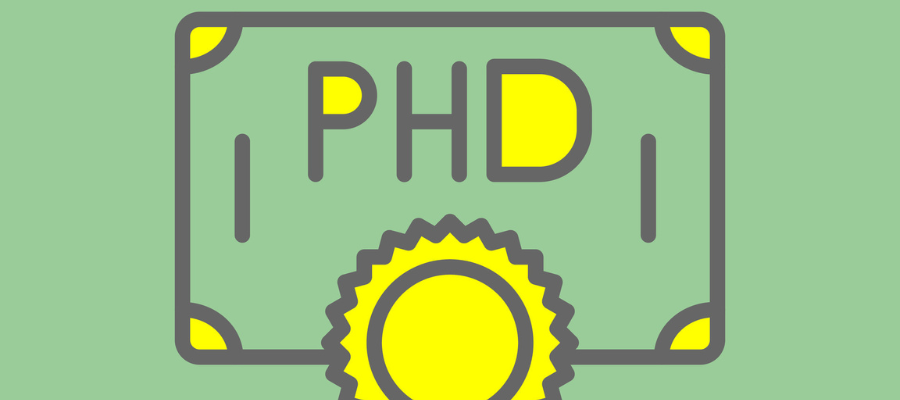Balancing a Part-Time PhD with Life Commitments


Balancing a part-time PhD with actual life commitments isn’t a challenge—it’s an extreme sport. Whether you’re working full-time, raising children, or attempting to remain sane amidst a whirlwind of commitments, doing a PhD part-time can feel like taking on an additional full-time job alongside your already bursting agenda.
But the truth is here: it is entirely possible. Thousands of individuals across the globe are already achieving their doctorates while juggling jobs, children, elderly parents, own health, and more. It requires strategy, toughness, and some hard-won wisdom. This blog will take you through the process of finding that elusive balance and actually flourishing in your part-time PhD adventure.
Why Pursue a Part-Time PhD?
Let us begin with the why. A part-time PhD is usually the career path of preference for:
- Working professionals who wish to further their profession or change careers.
- Parents or caregivers requiring flexibility.
- Individuals with limited finances who cannot afford to give up work.
- Mature students returning to the academic world later in life.
The part-time path provides flexibility in timelines (typically 6–8 years), less immediate financial burden, and the opportunity to implement research immediately in your professional career. But flexibility comes with a price: less structure, increased isolation, and increased risk of burnout.
The Common Challenges
Let’s recognize the special challenges of balancing life and a part-time PhD before we explore the strategies:
- Time Scarcity: You’re constantly deciding whether to write your thesis or go to your child’s school event—or perhaps cut back on sleep.
- Mental Load: You’re juggling multiple identities—researcher, worker, parent, partner—all simultaneously.
- Guilt: You feel like you’re not committing 100% to any one aspect of your life.
- Risk of Burnout: Without sufficient downtime, your productivity (and health) can crash.
- Isolation: Many part-time PhD students feel disconnected from campus life and academic networks.
7 Strategies to Balance It All
Here’s how you can steer clear of the chaos and stay on track with your PhD—and your life.
1. Master the Art of Time Management
This is not simply a matter of carrying a planner. It’s a matter of managing expectations. Employ the 80/20 rule: 80% of your outcomes will result from 20% of your efforts, so determine the most important tasks that are the most important in your PhD and prioritize accordingly.
Tools to try:
- Google Calendar or Notion for scheduling.
- Pomodoro Technique for focused writing.
- Eisenhower Matrix to prioritize tasks.
Block out non-negotiable “PhD hours” weekly, even if it’s just 5–10 hours. Treat them like meetings with your supervisor—no rescheduling, no excuses.
2. Communicate Clearly with Everyone in Your Life
Your success will often depend on how well others understand your commitments. Be transparent with:
- Your family: Let them know why certain sacrifices are necessary.
- Your employer: If your research is relevant, negotiate flexible hours or research support.
- Your supervisor: Make sure they understand your limited availability and suggest focused, actionable check-ins.
Sometimes, all it takes is setting the right expectations.
3. Create Micro Goals, Not Mega Goals
Thinking about writing a whole thesis can be paralyzing. Instead, break it down into micro goals:
- Write 300 words a day.
- Read one paper this week.
- Have a rough Chapter 2 outline drawn up by next Friday.
Small wins create momentum. And when life presents curveballs (which it will), it’s simpler to resume from a small halt than get back on track from a huge derailment.
4. Protect Your Energy, Not Just Your Time
Time isn’t the only requirement; you require mental attention and emotional stamina as well. A 2-hour writing session is useless if your head is mush.
- Plan high-cognitive activities (such as writing) at energy highs—usually early morning or post-exercise times.
- Get low-energy times (such as evenings) during admin or reference management.
- Decline voluntary commitments that suck your energy.
Get to know your rhythms. Guard them.
5. Create a Support Network
Isolation is not an illusion for part-time PhD students. Fight it by creating your own mini tribe:
- Join online communities or Facebook groups for part-time researchers.
- Organize monthly catch-ups with other students or mentors.
- Attend a minimum of one conference or workshop every year to remain plugged into academia.
Sometimes, the simple act of talking to someone who understands can shift your entire perspective.
6. Know When to Step Back
There will be weeks when it all comes crashing down: work deadlines, a child who’s not feeling well, your laptop dies, and your PhD progress is zero. It’s fine.
At such moments:
- Speak with your supervisor.
- Re-evaluate your timeline.
- Take a guilt-free break.
A brief break is better than exhaustion. Life won’t always go as planned for your academic ambitions, and that’s very human.
7. Celebrate Milestones—Even the Small Ones
You drafted a first draft of your chapter? Celebrate. Read five thick articles finally? Celebrate. Finally sorted out your research question in three weeks of indecision? Have a mini party (even pizza and Netflix will do).
Celebrating progress keeps you motivated. Don’t wait until you hand in your thesis to be proud.
Tips Based on Life Scenarios
Let’s segment based on your own life situation.
If You’re a Working Professional
- Align your work with your research for mutual benefit.
- Block work calendar and research time, if feasible.
- Commute time spent reading papers or brainstorming.
If You Have Children
- Get used to brief writing bursts during nap time or school hours.
- Consider part-time assistance or asking relatives to assist you with key PhD milestones.
- Involve your children in your PhD journey—explain how you are conducting your research.
If You’re a Caregiver
- Prioritize ruthlessly—both caregiving and research.
- Ask your university about support services or flexible leave options.
- Use audio tools to read and record notes while doing repetitive care tasks.
What Universities Can Do Better
Part-time PhD students often fall through the cracks. If you’re applying or currently enrolled, advocate for:
- Flexible timelines without academic penalties.
- Access to full-time student resources (like libraries, labs, counseling).
- Recorded seminars and asynchronous supervision options.
- Financial aid or scholarships specifically for part-time students.
Most institutions are realizing these needs—your voice can help get them moving further.
Mental Health Matters
No beating around the bush. Balancing a part-time PhD with life can be psychologically draining. Keep an eye on:
- Sleep patterns
- Feelings of being overwhelmed or isolated
- Imposter syndrome
It is okay to get counseling or therapy. Some universities provide free or reduced mental health services—use them.
A part-time PhD is not about speed—it’s about sustainability. Your desire is not to give up your health, relationships, or career for the label of “Doctor.” It’s to bring your academic aspirations into your life in a manner that enriches everything surrounding it.
Bear in mind: progress over perfection, consistency over intensity, and self-compassion over guilt.
If you’ve taken this road, it’s because your research counts. You count. So continue to turn up, continue to do the work, and when it all gets too much—stop, breathe, and carry on.
Call Aara Consultancy for further assistance!
We provide 360° Solution for your Education Needs. Contact us






